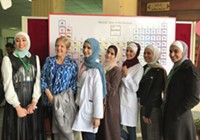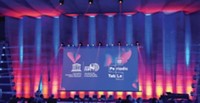Advertisement
Grab your lab coat. Let's get started
Welcome!
Welcome!
Create an account below to get 6 C&EN articles per month, receive newsletters and more - all free.
It seems this is your first time logging in online. Please enter the following information to continue.
As an ACS member you automatically get access to this site. All we need is few more details to create your reading experience.
Not you? Sign in with a different account.
Not you? Sign in with a different account.
ERROR 1
ERROR 1
ERROR 2
ERROR 2
ERROR 2
ERROR 2
ERROR 2
Password and Confirm password must match.
If you have an ACS member number, please enter it here so we can link this account to your membership. (optional)
ERROR 2
ACS values your privacy. By submitting your information, you are gaining access to C&EN and subscribing to our weekly newsletter. We use the information you provide to make your reading experience better, and we will never sell your data to third party members.
Environment
International Year Of Chemistry Launches
Opening Ceremony: Paris hosts chemistry delegates from around the world
by Sarah Everts
January 27, 2011
| A version of this story appeared in
Volume 89, Issue 5

Some 1,000 delegates from more than 60 countries convened in Paris on Jan. 27 to launch the 2011 International Year of Chemistry (IYC), which was decreed by the United Nations Educational Scientific & Cultural Organization (UNESCO).
The yearlong celebration of molecular science coincides with the 100th anniversary of Marie Sklodowska-Curie's receipt of the 1911 Nobel Prize in Chemistry as well as the 100th anniversary of the founding of the International Union of Pure & Applied Chemistry (IUPAC).
"Our goal for this year is not just to say good things about chemistry," said Irina Bokova, UNESCO director general, at the opening ceremony. "We want to say the truth about chemistry—its advantages and disadvantages, its opportunities, but also its risks."
Nicole J. Moreau, president of IUPAC, pointed out that chemistry will play an important role in solving some of the world's major challenges, including human health, food security, energy, and sustainable development. Moreau added that chemistry has "an abominable image" that she hopes will be improved by public outreach activities during IYC.
Marie Sklodowska-Curie's granddaughter, Hélène Langevin-Joliot, gave a keynote lecture at the IYC opening ceremonies. Langevin-Joliot, a nuclear physicist from the Institute of Nuclear Physics at Orsay, in France, described the life and accomplishments of her grandmother, who worked in an era when the scientific achievements of women were "ignored," she said.

This sentiment resonates with another goal of IYC, which is to reinforce the struggles that women around the world still face in chemistry. Bokova noted that women make up only 30% of chemistry researchers and that there have been only four female chemistry Nobel Prize winners.
The opening ceremonies featured lectures from chemistry Nobel Laureates Ada Yonath (2009), Jean-Marie Lehn (1987), and Yuan T. Lee (1986). Also planned are sessions devoted to how chemistry, through its role in global medicine, agriculture, and energy, can contribute to sustainable development.
"It's very exciting to celebrate the opening of IYC with chemists from all over the world," said Nancy B. Jackson, president of the American Chemical Society and attendee of the festivities in Paris. "Many of the chemical societies have brought young people and educators. I hope their experiences here in Paris will help them spark excitement about chemistry back in their home countries."
The opening ceremonies are just the beginning of many events to celebrate chemistry around the world in 2011, from science cafés in Cape Cod to chemistry shows in Sydney, Australia, to undergraduate competitions in Beirut, Lebanon, to museum displays in Athens, Greece.





Join the conversation
Contact the reporter
Submit a Letter to the Editor for publication
Engage with us on Twitter